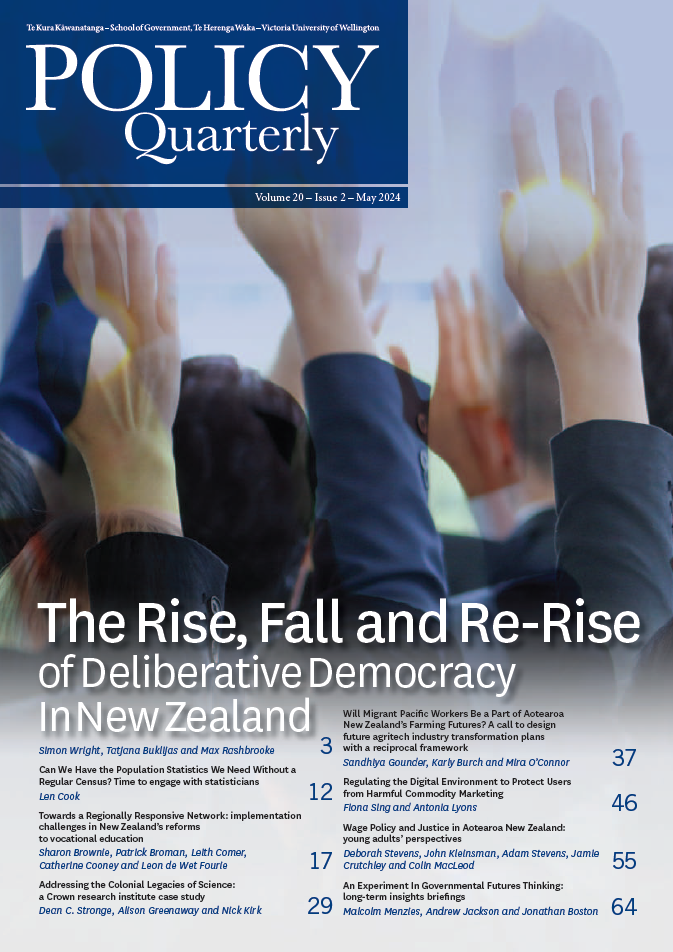The Rise, Fall and Re-Rise Of Deliberative Democracy In New Zealand
DOI:
https://doi.org/10.26686/pq.v20i2.9478Keywords:
deliberative democracy, citizens’ jury, participatory democracy, participation, consultation, engagementAbstract
In New Zealand the last few years have seen a re-emergence of interest in processes that build on the theory of deliberative democracy. Commentary on this trend, which typically positions deliberative democracy as a novel development in New Zealand politics, ignores several decades of public agencies’ democratic experimentation. In this article we describe three of the 15 identified processes displaying the critical elements of deliberative democracy: the Capital Power citizens’ jury (1996); Toi te Taiao: the Bioethics Council’s public deliberation on pre-birth testing (2007–08), and the citizens’ advisory panel on the Newtown–Berhampore cycleway (2014). We analyse the reasons for their ostensible failure and identify lessons that current policymakers interested in deliberative democracy should draw from these historical cases.
Downloads
Downloads
Published
Issue
Section
License
Permission: In the interest of promoting debate and wider dissemination, the IGPS encourages use of all or part of the articles appearing in PQ, where there is no element of commercial gain. Appropriate acknowledgement of both author and source should be made in all cases. Please direct requests for permission to reprint articles from this publication to Policy-Quarterly@vuw.ac.nz.



